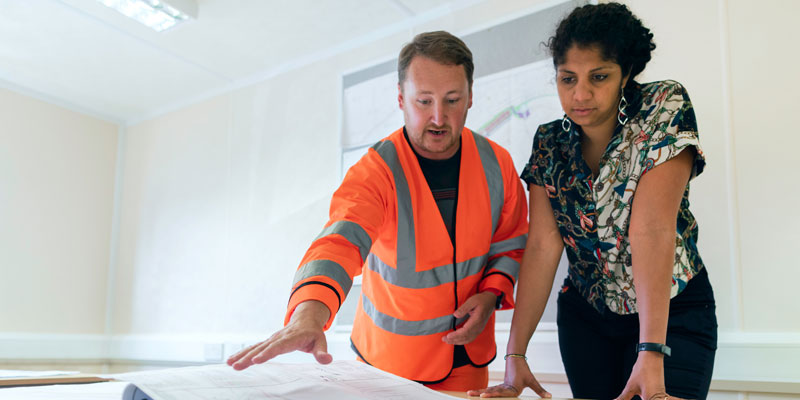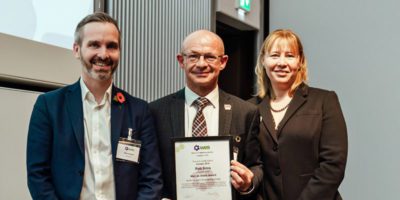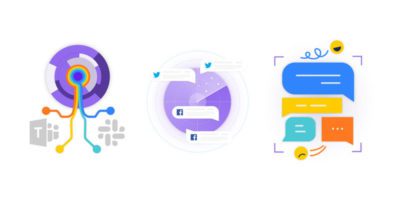Simon Blanchflower CBE is chief executive officer of East West Railway Company. Simon studied civil engineering at the University of Southampton, before joining British Rail and then going on to work on a number of high-profile rail projects, including the early-stage development of Crossrail to the innovative delivery of Heathrow Express, and most recently as programme director for the £5 billion Thameslink Programme. Simon is a passionate champion of inclusion, and he is executive sponsor of East West Railway’s inclusion strategy, East West Rail for All.
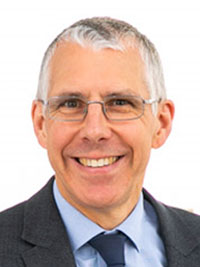
“We’re seeking to make sure that, as an organisation, we’re fully inclusive for people coming to work with us, and alongside us, but also that the services we offer as a railway are fully inclusive as well. There are some obvious examples of that, around people with reduced mobility and how they are able to access rail services, for instance. But it’s far broader than this.”
Career journey
I was brought up in leafy Surrey. Both my parents were school teachers and I had a fairly standard educational background, went to a local grammar school because we still had the 11 Plus in those days. I was fortunate enough to receive an engineering sponsorship agreement with British Rail when I left school, and they sponsored me to go to university to do a civil engineering degree.
So, my early career was with British Rail, and then, as rail privatisation happened in the early 90s, I left British Rail and was involved in a whole range of other projects including the launch of Heathrow Express, work on Terminal Five rail projects. I then moved on to Crossrail before joining Network Rail to help deliver the Thameslink Programme. Here I am, having successfully delivered the Thameslink Programme, now heading up East West Rail.
The role of CEO
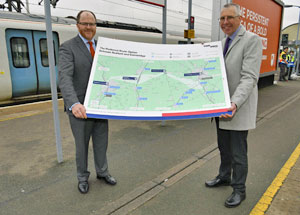
I provide leadership and vision within the organisation as we continue to grow and develop. We’re still quite a young organisation. I’m the first CEO and I haven’t even been in post three years yet, but we’re growing significantly at the moment as we onboard our new partner organisations to continue development of the railway.
COVID impacts
We went into remote working a week before government mandated it, so in the middle of March 2020. This means we’ve been remote working now for 16 months. All our systems were set up to support working that way already because we were using Microsoft Teams and all our information is cloud-based. This meant it was a relatively straightforward move to remote working for us.
However, it’s been quite a challenging period of time for a number of our staff because of their home situations, due to family commitments and so on. We’ve had to be very sympathetic and agile in our working approach, recognising that when people are working from home, a whole range of other issues come into play in terms of their ability to interact and engage with what’s going on in the workplace.
We are looking forward to migrating back into the workplace progressively from the middle of July, when hopefully the lockdown period is ended by the government.
A diverse range of viewpoints leads to better decision-making
Our organisation benefits in any of our meetings from having a range of viewpoints put across. That helps us to challenge and hone our thinking, whether it’s gender diversity, neurodiversity, whether it’s having people from Black, Asian and minority ethnic backgrounds in our team, it is all about trying to make sure that we are taking account of and listening to the voices of people from the widest possible range of backgrounds. That helps good decision making, and it helps us to think through the implications of what we’re doing in a wider context.
People will approach things from different perspectives, and I think that’s really helpful. If we all thought in the same way, we wouldn’t be able to come up with that range of potential solutions and put them on the table to discuss. Very quickly we would get into a groupthink scenario, which isn’t helpful when what we’re trying to do, particularly in the context of the government’s Build Back Better agenda, is to look at ways of doing things cheaper, quicker and in a more green manner, reflecting the climate emergency we have.
We need to aid nature recovery through our economic infrastructure investment. So, as we see those challenges ahead, we need to be able to bring in diversity of thinking, to help us to solve those problems. Diversity of thought also ensures we don’t keep doing things the way that we’ve always done them. We need to think about new and alternative ways of working. That leads to us wanting a range of talent and experience in the room to be able to help us to achieve that.
Diversity and inclusion touches everything we do
As I mentioned earlier, we’re still quite a young organisation, so we’re building our team at the moment. Part of that is making sure our recruitment processes don’t have any inherent biases within them, so we’re truly opening up opportunities for people to join the organisation from a range of backgrounds, and identities.
It’s extremely important to us to make sure that people inside the organisation are given opportunities to develop effectively. We’ve recently launched a new career development programme within the business that is tailored to making sure that everybody has the chance to develop and progress.
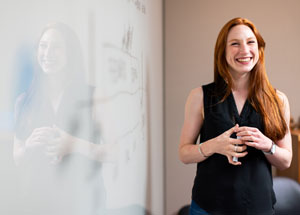
We’ve recently been looking at the gender pay gap and actions that we need to be taking to close it, and so again, that’s considering how we continue to sponsor women within the organisation, to coach them and to consciously support them in order to accelerate their career development.
We’ve also been looking at the working culture we have within the organisation. That’s particularly important as we’re moving from remote working into a more hybrid and agile working environment. How do we support people from different backgrounds, recognising that we can do things in a way that will be more inclusive and help people from a range of backgrounds to contribute fully within the workplace?
COVID has shone a real spotlight on mental health issues and helped us to understand some of the wider pressures that people are under. I have the greatest admiration for all the people who have been home educating children during this period. There is a whole range of people who have needed to balance work commitments with home education, with caring commitments for family members, neighbours, and so on.
That’s become far more real for people and far more visible as well, because of people working from home, so things which perhaps were hidden in the past, are more obvious now. As employers, we need to be responsive to that, and accommodating in terms of how we develop our working practices going forward. There are opportunities because of what is now revealed, and because of what we now understand, which perhaps, previously was hidden.
Inclusion isn’t just about ourselves, it’s about the services we offer
We have an inclusion strategy within East West Rail. That’s not just about ourselves as an organisation (in terms of people in the organisation), it’s also about the services we intend to offer as a railway. It’s called East West Rail For All, and I’m the executive sponsor because of the passion I have for inclusion in all of its dimensions.
We’re seeking to make sure that as an organisation, we’re fully inclusive for people coming to work with us, and alongside us, but also that the services we offer as a railway are fully inclusive as well. There are some obvious examples of that, around people with reduced mobility and how they are able to access rail services, for instance. But it’s far broader than this.
Will women feel safe at all times of the day and night, using our rail services? And if not, why not? We ought to be able to create an environment where everybody feels safe all the time using our services. That’s incredibly important to me, particularly in the light of the tragic murder of Sarah Everard, because that’s shone a new light on the issue of women’s safety, another vitally important dimension of inclusion.
As we’re interacting with schools and colleges along our route, we need to make sure we’re role modelling and enabling children within those educational environments to have the opportunities to think of themselves as being able to access the type of jobs that we will be creating. We’ve already started work, albeit remotely at the moment, in terms of offering work experience to help people from a range of backgrounds understand what we’re doing, and the opportunities that will create for them in the future.
As CEO, it’s for me to make sure we’re taking these matters seriously and that we’re putting resources into them. I also need to be encouraging people within the business to think in this way, because this is not just a head of inclusion’s job, or someone in our People and Culture Team’s job, it is everybody’s job. As a role model in the business, I can show how we put the effort and energy into this going forward.
Coming up
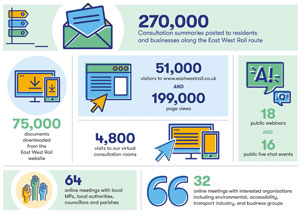
We’re also preparing for the government spending review this autumn. We need to make a compelling case to government around the investment in East West Rail and the timing of that investment. That’s a key challenge for us at the moment.
Personally, I love ultra-running, so I’m off on a wild adventure in Scotland in August which I’m really looking forward to. I’ll be running the Cape Wrath Ultra, which is Fort William to Cape Wrath – 400 kilometres in eight days. I can’t wait!

